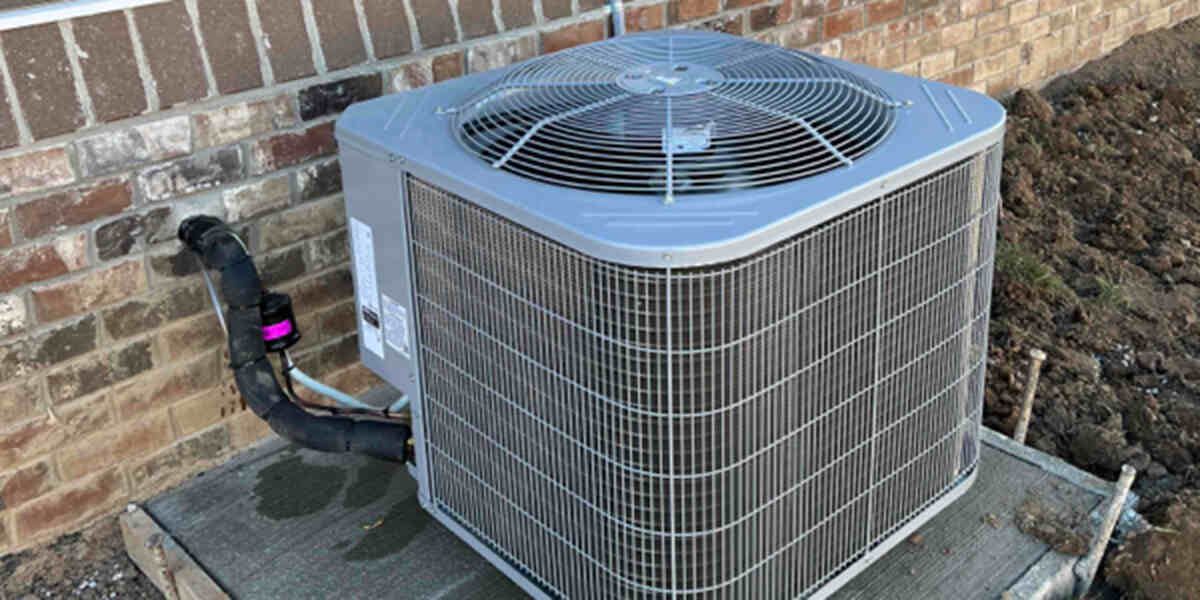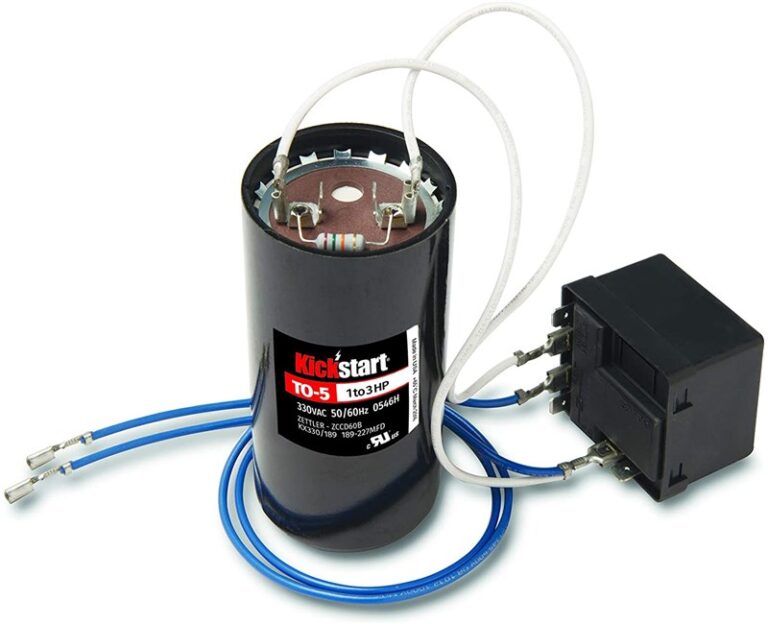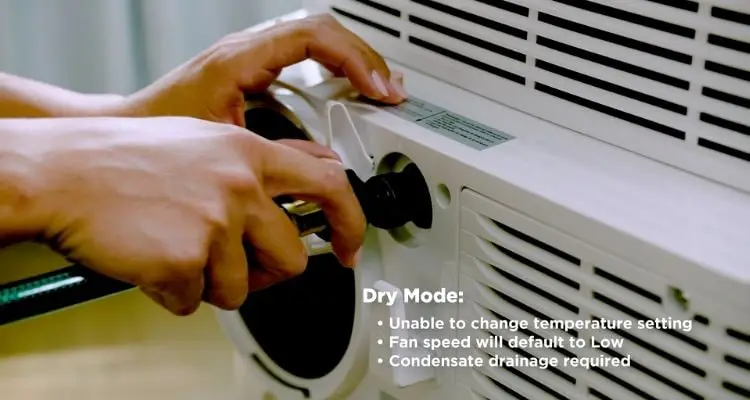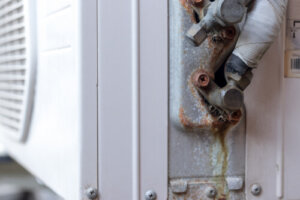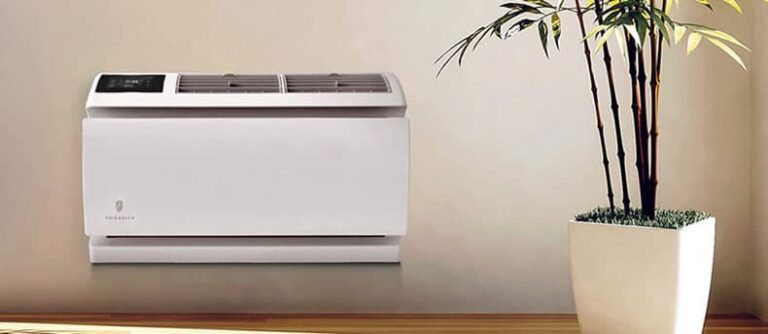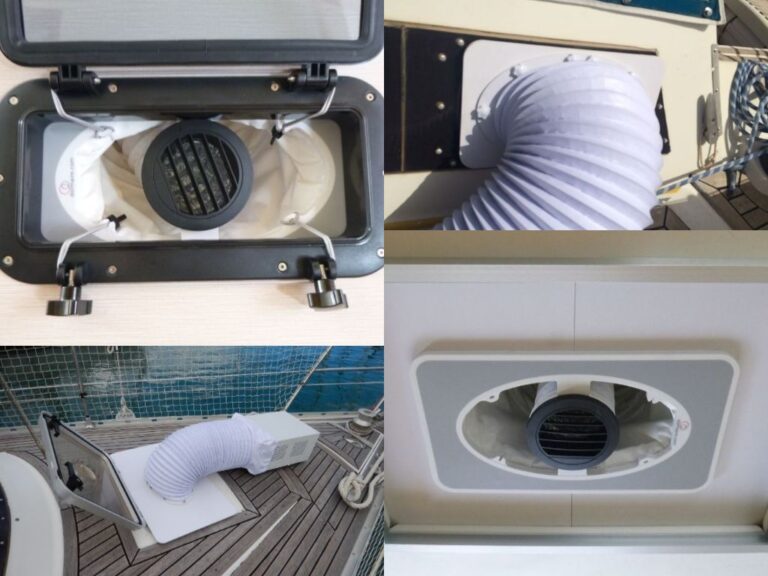Does Running The Fan On My Air Conditioner Reduce Humidity?
Running the fan on your air conditioner does not reduce humidity. It may actually increase the humidity level.
Many people believe that running the fan on their air conditioner helps to reduce humidity, but this is a misconception. The fan simply circulates air without removing moisture. This can lead to higher humidity levels inside your home. Air conditioners reduce humidity by cooling the air, causing moisture to condense and drain away.
Running the fan continuously can re-evaporate this moisture back into the air. To effectively manage humidity, use the “Auto” fan setting. This ensures the fan runs only when the cooling system is active, allowing the air conditioner to dehumidify the air efficiently.
How Air Conditioners Work
Air conditioners are essential for maintaining a comfortable indoor environment. They cool the air and reduce humidity, providing relief during hot and humid days. This section will explain the main processes involved in how air conditioners work.
Cooling Process
The cooling process in an air conditioner starts with the evaporator coil. Warm air from your home is drawn in by a fan. This air passes over the cold evaporator coil. The coil absorbs heat from the air, cooling it down. The cooled air is then blown back into your home, lowering the indoor temperature.
Dehumidification
Dehumidification is another critical function of an air conditioner. As warm air passes over the evaporator coil, moisture in the air condenses. This moisture collects on the coil and drips into a drain pan. This process reduces the humidity in your home, making it more comfortable. Running the fan without the cooling function may not reduce humidity effectively.
| Component | Function |
|---|---|
| Evaporator Coil | Absorbs heat and cools the air |
| Fan | Circulates air over the coil |
| Drain Pan | Collects condensed moisture |
- Air conditioners cool and dehumidify air.
- Evaporator coils absorb heat from indoor air.
- Condensed moisture is collected in a drain pan.
- Warm air is drawn in by the fan.
- Air passes over the evaporator coil.
- Heat is absorbed, cooling the air.
- Cooled air is blown back into the room.
- Moisture condenses and collects in the drain pan.
Role Of The Fan In Ac Units
The fan in your air conditioner plays a crucial role. It helps in circulating the air throughout your home. Understanding its function can help you manage indoor humidity better.
Circulation Mechanism
The fan works by moving air across the evaporator coils. These coils cool the air, reducing its humidity. The moisture in the air condenses on these coils.
Once the air cools and loses moisture, the fan circulates it. This helps in maintaining a comfortable indoor environment.
Fan Settings
Most AC units have multiple fan settings. These settings control the speed at which air circulates.
- Auto: The fan runs only when the AC is cooling.
- On: The fan runs continuously, regardless of cooling.
Using the Auto setting can be more efficient. It allows the AC to remove more moisture from the air. Running the fan On continuously might circulate humid air.
| Setting | Function |
|---|---|
| Auto | Fan runs only during cooling cycles, more efficient for humidity control. |
| On | Fan runs continuously, can circulate humid air. |
Understanding these settings helps you control indoor humidity. Always choose the right fan setting for your comfort.
Humidity And Its Effects
Humidity can make your home feel uncomfortable. High humidity levels affect more than just comfort. They can impact health and your home. Understanding humidity helps in managing it better.
Comfort Levels
Humidity makes the air feel hotter. Even if the temperature is the same, high humidity can make you feel sweaty. This is because your sweat can’t evaporate. Evaporation helps cool your body. Without it, you feel sticky and uncomfortable.
Running the fan on your air conditioner can help. It circulates air and makes the home feel cooler. This can improve comfort levels.
Health Concerns
High humidity can affect health. It can cause respiratory problems. It can also worsen asthma and allergies. Mold and dust mites thrive in humid environments. They can trigger allergic reactions.
Using the air conditioner fan can reduce humidity. This can help improve indoor air quality. It can also reduce the risk of health issues related to humidity.
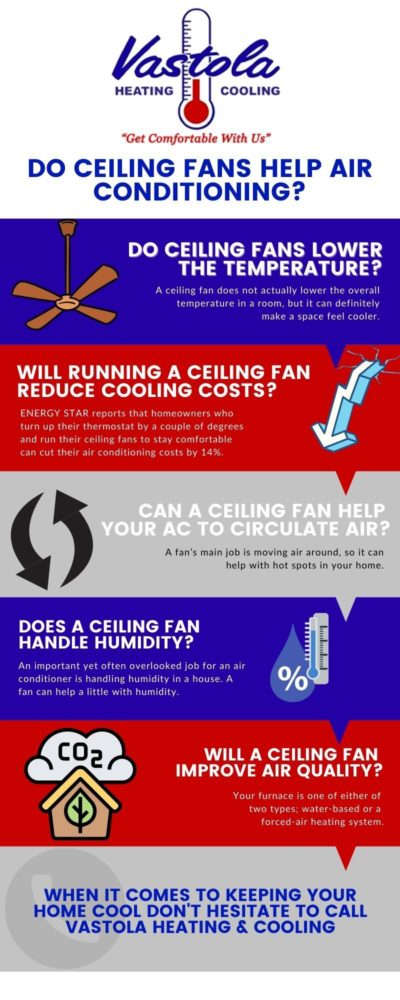
Credit: vastolaheating.com
Fan Operation And Humidity
Understanding how your air conditioner’s fan works can help control humidity. The fan operation affects moisture levels in your home. Two main modes impact this: Constant Fan Mode and Auto Fan Mode.
Constant Fan Mode
In Constant Fan Mode, the fan runs all the time. This mode can circulate air continuously. But, it may not reduce humidity effectively. The constant airflow might not allow enough time for moisture to condense. This can keep the air humid.
Pros:
- Consistent air circulation
- Even temperature distribution
- Higher energy bills
- Potentially higher humidity
Auto Fan Mode
In Auto Fan Mode, the fan runs only when cooling. This mode can be more efficient in reducing humidity. It allows the evaporator coils to remove moisture effectively. The fan stops when the air reaches the desired temperature.
Pros:
- Better humidity control
- Lower energy usage
- Less constant air circulation
- Possible temperature fluctuations
| Mode | Humidity Control | Energy Usage | Air Circulation |
|---|---|---|---|
| Constant Fan Mode | Poor | High | Good |
| Auto Fan Mode | Good | Low | Poor |
Energy Efficiency Concerns
Running your air conditioner’s fan can impact your home’s energy efficiency. The fan helps circulate air, but it also uses power. Let’s dive into the details.
Power Consumption
Your air conditioner’s fan uses electricity when it runs. This is true even if the compressor is off. Running the fan continuously can add up. The power usage depends on the fan’s speed settings. Higher speeds use more electricity. Here’s a simple comparison:
| Fan Speed | Power Usage (Watts) |
|---|---|
| Low | 50 |
| Medium | 75 |
| High | 100 |
Cost Implications
Running the fan continuously impacts your electricity bill. Here’s how it breaks down:
- Low speed: Adds around $5 per month
- Medium speed: Adds around $7.50 per month
- High speed: Adds around $10 per month
These costs might seem small, but they add up over time. Consider these factors before running the fan all day. Reducing fan usage can save money and energy.
Comparing Fan Modes
Comparing fan modes on your air conditioner can help you manage humidity. Understanding the differences can make your home more comfortable. Here, we break down the performance differences and user preferences of various fan modes.
Performance Differences
Different fan modes can affect how well your air conditioner handles humidity. Let’s explore the most common modes:
- Auto Mode: The fan runs only when cooling. This mode helps reduce humidity more effectively.
- On Mode: The fan runs continuously, even when the cooling cycle is off. This mode can circulate moist air, making the room feel more humid.
- Economy Mode: The fan and the compressor cycle on and off together. This mode balances energy use and humidity control.
Auto mode is generally better for humidity control. The fan stops when the cooling cycle ends, helping remove more moisture.
User Preferences
Different users have different needs and preferences for fan modes. Here’s a quick overview:
| Preference Type | Recommended Fan Mode |
|---|---|
| Lower Humidity | Auto Mode |
| Constant Airflow | On Mode |
| Energy Savings | Economy Mode |
Auto mode is best for reducing humidity. On mode is better for those who want continuous airflow. Economy mode is good for energy-conscious users.
Choose the fan mode that fits your lifestyle and needs. Selecting the right mode can make a big difference in comfort and energy use.
Tips For Optimal Humidity Control
Maintaining optimal humidity levels in your home can be challenging. Running the fan on your air conditioner can help reduce humidity. But there are other tips you can follow. This section provides valuable insights on how to control humidity effectively.
Thermostat Settings
Your thermostat settings are critical for humidity control. Set your thermostat to the “Auto” mode instead of the “On” mode. When set to “Auto”, the fan runs only when the air conditioner is cooling. This helps in removing more moisture from the air.
Another tip is to avoid setting the thermostat too low. Setting it too low can make the air conditioner run continuously. This can cause the fan to blow moisture back into the room.
Additional Equipment
Using additional equipment can significantly help in controlling humidity. Consider investing in a dehumidifier. Dehumidifiers work by removing excess moisture from the air.
| Equipment | Function |
|---|---|
| Dehumidifier | Removes excess moisture |
| Hygrometer | Measures humidity levels |
Another useful tool is a hygrometer. A hygrometer helps you monitor the humidity levels in your home. Keeping an eye on these levels allows you to take timely action to reduce humidity.
Fans and vents also play a role in humidity control. Ensure that your home’s exhaust fans are functioning well. Use them in areas prone to high humidity like bathrooms and kitchens.
By following these tips, you can maintain a comfortable and healthy living environment.
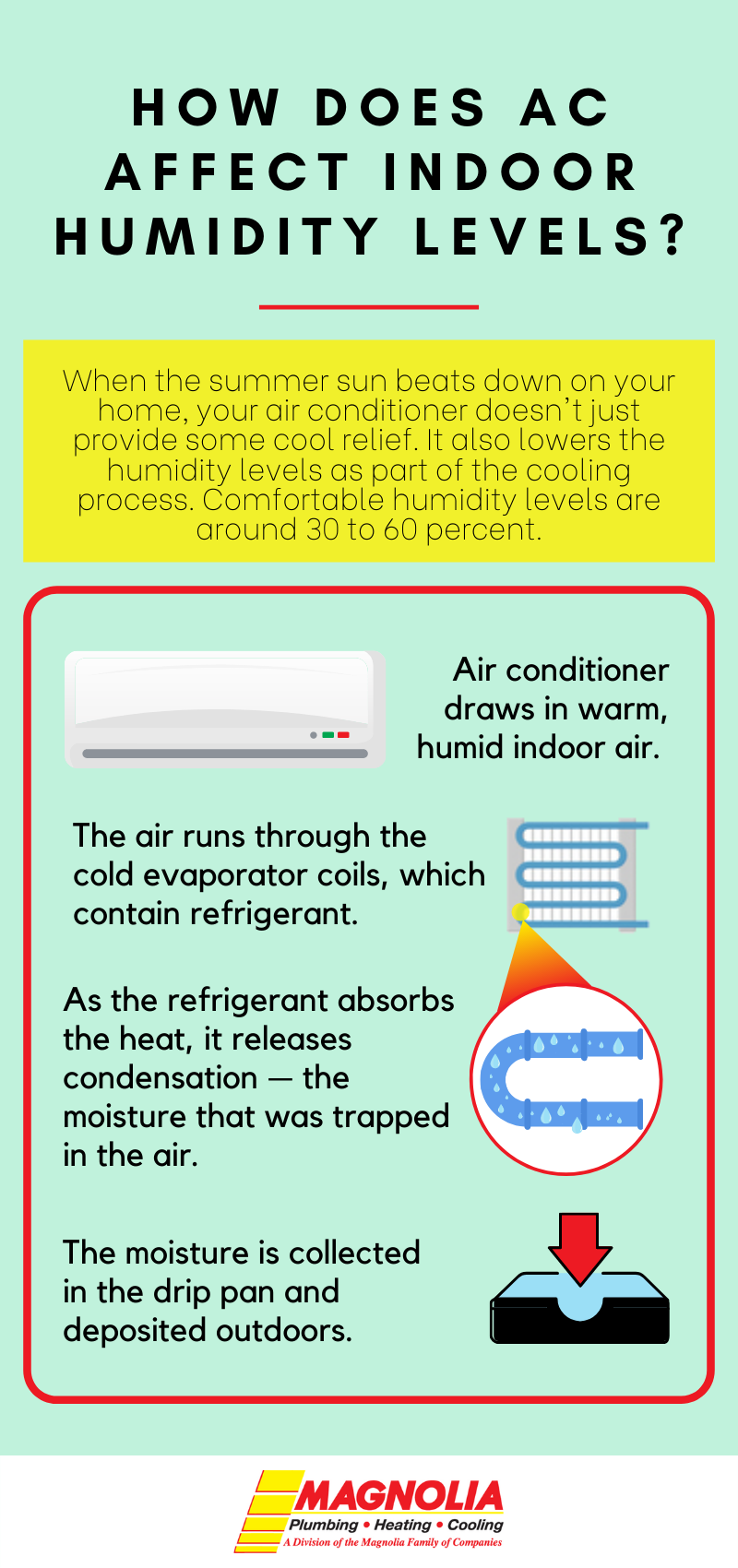
Credit: magnoliacompanies.com
Common Myths And Misconceptions
Understanding how your air conditioner works can be confusing. Many homeowners believe myths about fans and humidity control. These misconceptions can lead to inefficient use of your AC system. Let’s debunk some common myths.
Fan Usage Myths
Many think running the fan alone can reduce humidity. This is not true. The fan circulates air but does not remove moisture. The AC unit itself removes humidity. Using the fan alone can make your home feel more humid. This is because the fan blows air over wet surfaces, spreading moisture.
Another myth is that running the fan continuously saves energy. In reality, this can increase energy costs. The fan uses electricity, and running it all the time can lead to higher bills. It’s more efficient to let the AC cycle on and off as needed.
Humidity Control Myths
Some believe that a cooler home means less humidity. Lower temperatures don’t always mean less moisture. Your AC needs to run long enough to remove humidity. Short cycles can cool the air but leave moisture behind.
Another misconception is that a bigger AC unit will control humidity better. A larger unit cools the home quickly but does not run long enough to remove moisture. An AC unit must be the right size for your home to manage humidity effectively.
| Myth | Truth |
|---|---|
| Running the fan reduces humidity | The fan circulates air but does not remove moisture |
| Continuous fan use saves energy | Running the fan all the time can increase energy costs |
| Cooler home means less humidity | Lower temperatures don’t always mean less moisture |
| Bigger AC units control humidity better | A larger unit may not run long enough to remove moisture |
By understanding these myths, you can use your air conditioner more effectively. Proper use leads to better humidity control and lower energy bills.

Credit: www.strandbrothers.com
Frequently Asked Questions
Does Ac Fan Mode Remove Humidity?
AC fan mode does not remove humidity. It only circulates the air without cooling or dehumidifying. For humidity removal, use the cooling mode.
Does The Fan On An Ac Dehumidify?
No, the fan on an AC does not dehumidify. Only the cooling mode reduces humidity by removing moisture.
How To Reduce Humidity In An Air Conditioned Room?
Use a dehumidifier. Ensure proper ventilation. Keep windows and doors closed. Maintain AC filters. Use moisture-absorbing materials.
Conclusion
Running the fan on your air conditioner can help reduce humidity levels in your home. This simple step improves comfort and air quality. Regular maintenance and proper usage maximize your AC’s efficiency. For optimal results, consider a dehumidifier for persistent humidity issues.
Stay cool and comfortable with these easy tips.

